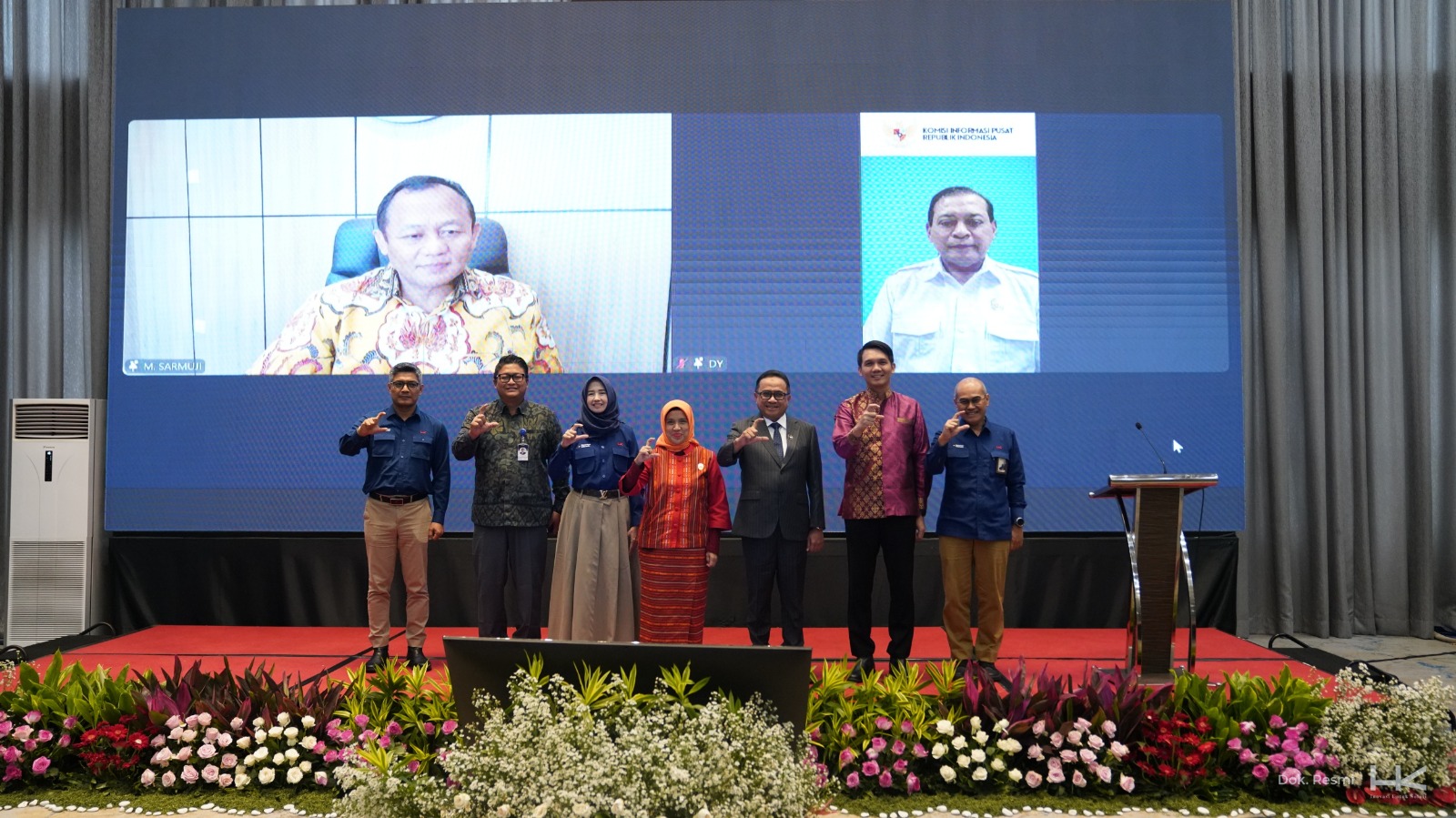HUTAMA KARYA AND CENTRAL INFORMATION COMMISSION JOIN FORCES TO ADVANCE INFORMATION ACCOUNTABILITY IN SOEs

JAKARTA – PT Hutama Karya (Persero) (Hutama Karya) collaborated with the Central Information Commission (Komisi Informasi Pusat) to host the Forum on Enhancing Literacy and Strengthening the Implementation of Public Information Disclosure today, Tuesday (September 16). The event, held at the HK Tower Ballroom in Jakarta, was attended by Dr. Ir. Donny Yoesgiantoro, M.M., M.P.A, Chairman of the Central Information Commission; Agus Dwi Handaya, SE Ak, MBA, Managing Director HC of Holding Operation Danantara Indonesia; Samrotunnajah Ismail, S.E., M.Si, Commissioner for Advocacy, Education, and Public Communication of the Central Information Commission; Muhammad Sarmuji, S.E., M.Si, Member of Commission VI of the House of Representatives (DPR RI); Dr. Ilham Soetansah, S.H., M.M, Group Head Legal of PT Bank Mandiri (Persero) Tbk; Sugiarti, S.E., M.M, Director of Risk Management Hutama Karya; along with 63 SOEs and 25 representatives from Hutama Karya’s Information and Documentation Management Officers (PPID). The forum aimed to strengthen the implementation of Law No. 14 of 2008 on Public
Information Disclosure, particularly within State-Owned Enterprises (SOEs).
In his opening remarks, Chairman Donny Yoesgiantoro emphasized the Commission’s mandate to ensure consistency in information disclosure practices across public institutions, underlining the importance of data-driven implementation to align public responses with community needs.
“We welcome this joint forum with Hutama Karya. Public information disclosure is both a right of citizens and a legal obligation for public bodies under Law No. 14 of 2008. Through this forum, we aim to enhance the capacity of public institutions to manage information professionally, inclusively, and in the public interest,” Donny said.
Commissioner Samrotunnajah Ismail further highlighted the need to strengthen institutional awareness and maintain quality standards in implementing the Public Information Law through service protocols, information classification, and optimized access channels. Meanwhile, Dr. Ilham Soetansah from Bank Mandiri outlined the potential legal risks of non-compliance with the law, stressing the importance of procedural documentation, compliance audits, and capacity building for information officers.
Adjib Al Hakim, Executive Vice President Corporate Secretary of Hutama Karya, reinforced that information transparency is fundamental to corporate governance. “Openness is a pillar of governance and work culture that supports reputation, trust, and sustainability. As a state-owned construction enterprise engaged in national strategic infrastructure projects, Hutama Karya must provide standardized, responsive, and well-documented information services to the public,” Adjib stated.
He further noted that Hutama Karya has continuously strengthened its information management infrastructure, from digital archiving to inclusive service channels, positioning transparency as part of its sustainable development commitment. Initiatives include the launch of the PPID Mobile app in 2021, the establishment of the “Bridge of Transparency” Public Information Room at HK Tower in 2025, and the expansion of newsroom and media engagement efforts. These initiatives helped Hutama Karya transform from a “non-informative” public body in 2019 to an Informatif designation for three consecutive years (2022–2024)—a first among infrastructure SOEs.
The collaboration between Hutama Karya and the Central Information Commission is expected to accelerate standardization of information disclosure practices across SOEs, reinforcing accountability in national infrastructure projects while building greater public trust.
“Hutama Karya remains committed to advancing public information disclosure as a long-term priority to strengthen both reputation and performance as a state-owned construction company,” Adjib concluded.
The forum, with participation from 63 SOEs, highlighted a shared understanding that transparency is not only a legal obligation but also a strategic tool to enhance accountability, strengthen public trust, and promote open governance in Indonesia.
